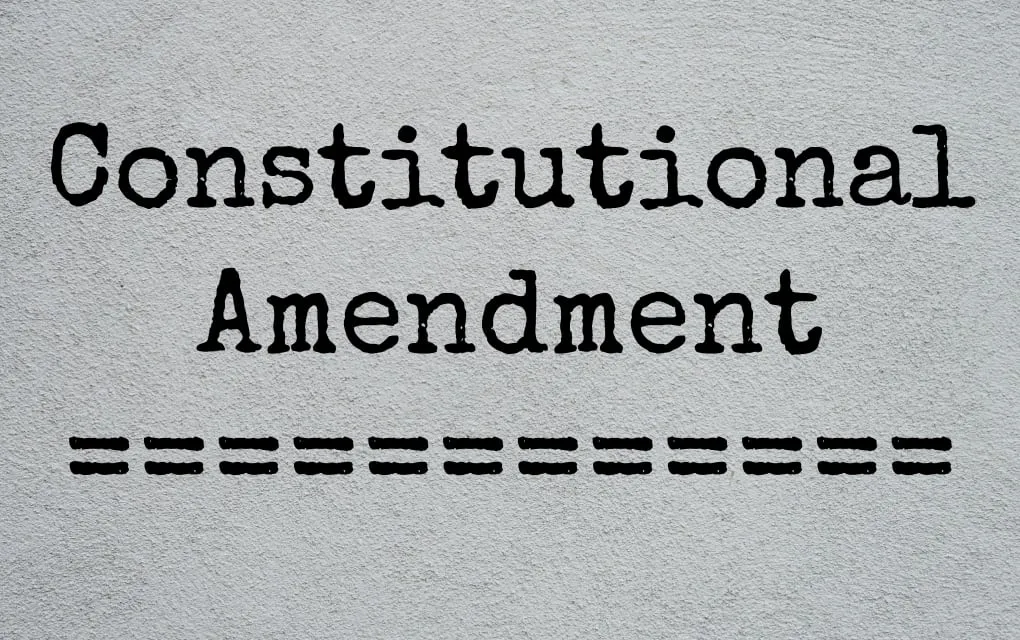After a couple hours of debate, 12 House Republicans joined Democrats in opposing a constitutional amendment that would allow Kentucky lawmakers to give public dollars to nonpublic schools.
However, 65 Republicans supported the priority legislation, House Bill 2, in a 65-32 vote on Wednesday.
If also approved by the Senate, voters would decide this November whether to give the legislature the authority to appropriate dollars for “the education of students outside the system of common schools,” meaning funding to elementary and secondary schools outside Kentucky’s public education system.
Kentucky’s Constitution, adopted in 1891, strictly bars using tax dollars to fund any but the state’s “common schools,” and courts, citing the Constitution, have struck down legislative attempts to steer tax dollars into private or charter schools.
The amendment that the House approved “notwithstands” or suspends seven sections of the 1891 Constitution, which would give supporters of private school vouchers and charter schools much greater leeway to enact laws in the future, including the authority to enact education legislation applying to a single district or county.
The bill’s primary sponsor, Republican Caucus Chair Suzanne Miles, of Owensboro, repeatedly argued that the bill wasn’t an indicator of what legislation could come in the future if voters approve the amendment.
“We underestimate the value of the opportunities that we can have to educate every child,” Miles said at the close of debate. “It is not a one size fits all.”
Throughout debate on the bill, Democrats warned the bill is paving the way for the General Assembly to choose to fund nonpublic schools. House Speaker David Osborne frequently pushed back at them, telling them to keep their comments to the bill on the floor only and not any possible future legislation.
“It’s very difficult to discuss the constitutional amendment that will impact significantly our public schools without discussing potential legislation that may occur with this,” said Rep. Tina Bojanowski (D-Louisville).

A few Democrats also raised issues with the wording of the question that will appear on the ballot, calling it misleading and difficult for voters to understand. Rep. Cherylnn Stevenson, of Lexington, attempted to call a floor amendment that was not filed in time to change the question, but a motion to suspend the rules failed.
Republicans, including several from rural areas, also joined in opposing the bill. Public school districts are often one of the top employers within rural counties.
Rep. Timmy Truett (R-McKee) said students in his district do not have options when it comes to education, but recognized some lawmakers come from districts where there are multiple options already. He is an elementary school principal.
“I will tell you where I stand on this: I know I’m not against ‘school choice,’ but I am against taking money away from the districts who need that extra funding, and I’m afraid of what this legislation may do,” Truett said.
Rep. Chris Fugate (R-Chavies) said that while he was supportive of the idea behind House Bill 2, he couldn’t support it Wednesday. He said school buildings within his own district haven’t been restored since devastating floods in Eastern Kentucky and likely would never be rebuilt without funding from the General Assembly. He encouraged his colleagues to fund existing schools before adding nonpublic schools to the mix.
Some rural Republicans said they voted yes to put the question before the voters. Rep. Jacob Justice, of Elkhorn City, said he was supportive of families having multiple options for their children but was against “anything that could be detrimental or hurt our public school systems in any way.”
“So today, I’m a yes for giving Kentuckians a voice,” Justice said. “I’m a yes for the democratic process, but when it’s on the ballot, I will definitely be a hard no.”
Legal issues
In recent years, the “common schools” phrase in the constitution has been a legal hurdle for the General Assembly’s charter school legislation. When striking down a charter school law in December, Franklin Circuit Court Judge Phillip Shepherd wrote that charter schools are “private entities” that do not meet the Kentucky Constitution’s definition of “public schools” or “common schools.”
In December 2022, the Kentucky Supreme Court unanimously struck down a Kentucky law creating a generous tax credit to help families pay for tuition at private schools. The opinion, which upheld a circuit court ruling by Shepherd, cited a long line of precedent reinforcing the Kentucky Constitution’s ban on the state financially supporting private schools.
Some Democrats also questioned why the bill was being rushed. It was heard in a special-called meeting upon adjournment Tuesday, despite being a priority for GOP leadership this session. The House Committee on Elections, Constitutional Amendments, and Intergovernmental Affairs voted 11-4 to forward the bill to the full House in a Tuesday afternoon meeting — a day before the House floor vote.
In that meeting, the only person who testified was Eddie Campbell, president of the Kentucky Education Association. He said other states’ experiences show that educational vouchers and charter schools would drain money from the public school system. He also raised concern that the amendment “notwithstands” or suspends seven sections of Kentucky’s Constitution.
On the House floor Wednesday, Rep. Josie Raymond, a Louisville Democrat who is not seeking reelection, chastised recent Republican-backed constitutional amendments that failed on the ballot and called House Bill 2 “another loser.” Such amendments included giving the General Assembly the power to call itself into a special session and clarifying there is no right to an abortion in the state constitution.
“It will be so embarrassing for you all,” she said.
The bill now goes to the Senate for consideration. Constitutional amendments do not go to the governor, but directly to the secretary of state for placement on the ballot.
--30--
Written by McKenna Horsley. Cross-posted from the Kentucky Lantern.








